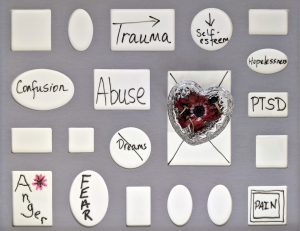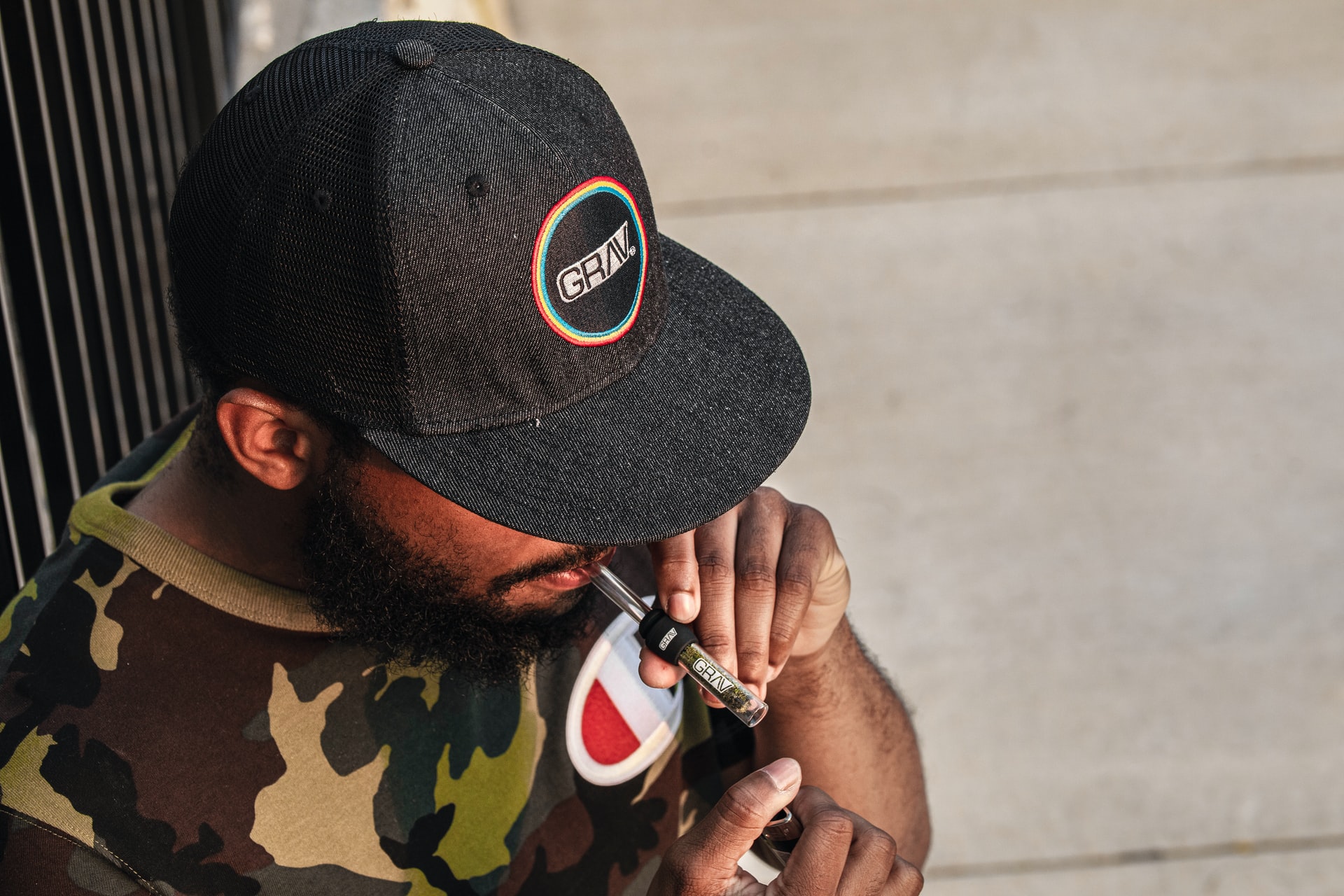A teenager using drugs causes deep heartache to their parents.
Many parents blame themselves and try their best to deal with the drug abuse using this mindset. Any strategy based on self-blaming will almost always result in the problem persisting.
A teenager abusing drugs can easily pick the motive behind your approach and use it to their advantage. They manipulate you into supporting their drug use by:
- Making promising to stop using drugs so that you give in to their requests
- Using anger to force you to unwillingly support their drug use
- Deliberately embarrassing you to cause you to yield to their requests
- Threatening suicide or self-harm to force you to back down from dealing with their drug addiction problem
These methods are planned out in your teenager’s mind to do whatever it takes to support their drug use. Recovering addicts usually say that the tactics they used weren’t a personal attack on their parents, but they wanted a way to get their next high.
It takes a daring parent to take action and not let their teenager’s tactics work on them. It begins by changing how you view your teenagers’ drug addiction and knowing the help you can give them. That’s what we’ll be discussing today.
#1. Accept the Existence of a Problem

When human beings receive bad news, the first reaction is to deny its existence. The same applies to a parent who has found out their teenager abuses drugs. Some parents continue in this denial state and label it as a teenage stage that will pass.
It’s emotionally safe to remain in denial because it reduces the gravity of the problem and the emotional toll it’ll have on them. Signs that you could be in denial of your teenager’s drug problem include:
- Finding it hard to say that your teenager has a drug problem
- Getting upset when others point out the drug problem
- Making excuses for them when they misbehave
- Making people feel guilty for raising the issue
- Failing to let them go through the consequences of their actions
It’s courageous for a parent to acknowledge and accept the existence of their teenager’s drug abuse problem. The table below gives you six stages you’ll go through or may have gone through to reach the acceptance stage.
| Acceptance Stages | Parent’s Mindset, Response and Behaviour |
| 1. Bad news( teen uses drugs) | – Oh no, this is not good |
| 2. Denial | – This is not happening
– My teenager is experimenting – I will give it time |
| 3. Anger/Aggression | – Who are you to tell me anything about my teenager
– I’ll take charge and force him to stop – I don’t want to see or talk to my teenager |
| 4. Depression | – Oh no, my teenager truly has a drug problem
– Why did this happen, what kind of parent am I – It’s hopeless, no one can solve this |
| 5. Bargaining | – It has happened; I can’t deny it anymore
– How bad is it – What adjustments do I need to make |
| 6. Acceptance | – It could have been worse
– I have to take care of myself too – Who and how can I help |
It’s not automatic that you’ll get to the six stages of acceptance; you may find yourself stuck in any of the other stages and you may need help from a friend, counsellor or spiritual leader to help you come to terms with your teenager’s drug addiction problem. From there, you’ll be able to handle the challenge efficiently.
#2. Cut off the Financial Support

One of the primary ways parents of teenagers enable a drug problem is by giving them money. Enabling is the act of a parent preventing their teenager from hitting a personal rock bottom by pampering them and supporting them in ways that allow them to get the next high.
For example, a teenager asks money for food, and you give it to them by telling yourself they need to eat as opposed to saying no and packing lunch or stocking the house with all the food they need. Other situations they ask for money that you may need to look for another way around it are:
- A trip with friends
- Buying personal items
- Bailing them out from a situation (even arrest)
- Helping a friend in need
- Taking extra classes outside school
I understand saying no doesn’t come naturally. The tactics they’ll use may even cause you to give in. They may beg, plead and use guilt and shame to get you to give them money. As much as going into your pocket is the easiest solution at that time, you’re helping to grow the addiction, and the problem is bound to escalate as they become young adults.
You need to look for support from your spouse, older children, pastor, friends and counsellor to help you implement a workable strategy. To begin with, you can have a family meeting and clearly state that you’ll no longer give them money no matter what they say it’s for. Afterwards, prepare yourself for retaliation, and the support system you’ve established will help you go through it.
#3. Set Clear Boundaries
Setting clear boundaries is about being clear with them about what you will and will not do for them. It maps out how you expect your teenager to treat you and the consequences that’ll follow. You also need to know the right consequences you’ll use to get results.
Boundaries also help you differentiate between helping and enabling your teenager. Enabling is a sign of poor boundaries because you take too much responsibility for your teenager’s actions. Enablers will:
- Make excuses for their teenager
- Blame themselves
- Focus on relieving short term pain by giving in to their demands
- Unknowingly reinforce drug use by downplaying the problem
Making the daring move of setting clear boundaries helps you avoid being an enabler. The responsibility of your teenager’s actions now lies with them, increasing the likelihood of their willingness to seek drug abuse treatment.
Teenagers and more so teenagers influenced by drugs are good at testing boundaries. Your teenager will resist your efforts until they know how far to push to get what they want. Some boundaries to start you off include:
- No drug use in the house or in your presence
- You will not bail them out if arrested (for a young teenager, let them stay for a few hours)
- Ridicules, insults, and blaming are prohibited and will have consequences
- You will not lie or cover for them
- There will be consequences when they miss curfew time
- They are required to be present for dinner and attend family meetings
#4. Be a Source of Spiritual and Emotional Support

Teenagers become addicts by experimenting with drugs and becoming hooked on them unexpectedly. Parents overlook the fact that some teenagers start using drugs to help them feel better about themselves or cope with their life situations.
National Institute of Drug Abuse Studies has shown that depressive symptoms are connected to the initiation of drug use among adolescents. Here’s a quote from one study,
“Students’ depressive symptom levels were found to be associated with lifetime use of cigarettes and other forms of tobacco, marijuana, alcohol, inhalants, and prescription painkillers, and negative urgency was linked to the adolescents’ depression levels and age of first use and lifetime use of alcohol”—NIH
Being aware as a parent that this could partly be the reason your teenager is using drugs will help you learn new ways of handling the drug problem and offer the right support. Supporting them may also include seeking counselling for yourself and your family members dealing with drug addiction challenges.
Another factor parents forget to consider is that every human being has a deceitful heart. God puts it clearly in Jer 17:9 “The heart is deceitful above all things, and desperately sick; who can understand it?”
People sometimes seek things that they think will bring them the greatest satisfaction and, in the end, lead to destruction. Your teenager is no exception. Only God can intervene and solve the heart problem that wants to abuse drugs.
Seeking God for yourself, then praying for your teenager and reading the bible as a family will lead them in the right direction. They will see their need for God and be willing to submit their life and their addiction to him.
All Hope is Not Lost
It is a good thing you’ve caught your teenager’s drug problem this early; using the above methods will help you lead them in the right direction and allow your teenager to take responsibility for their life. You can also learn practical ways of raising your teenager by signing up for our parenting classes. We offer comprehensive training to help you strengthen your relationship with your teenager.
Jane Kariuki is a devout Christian, Clinician, Psychologist, and founder of ParenTeen Kenya. She authored an exceptional training manual used in her teens’ workshop and an instructional guidebook for her parenting classes. If she is not training, blogging, or counseling, Jane loves to spend time with her sweet husband and three children.







